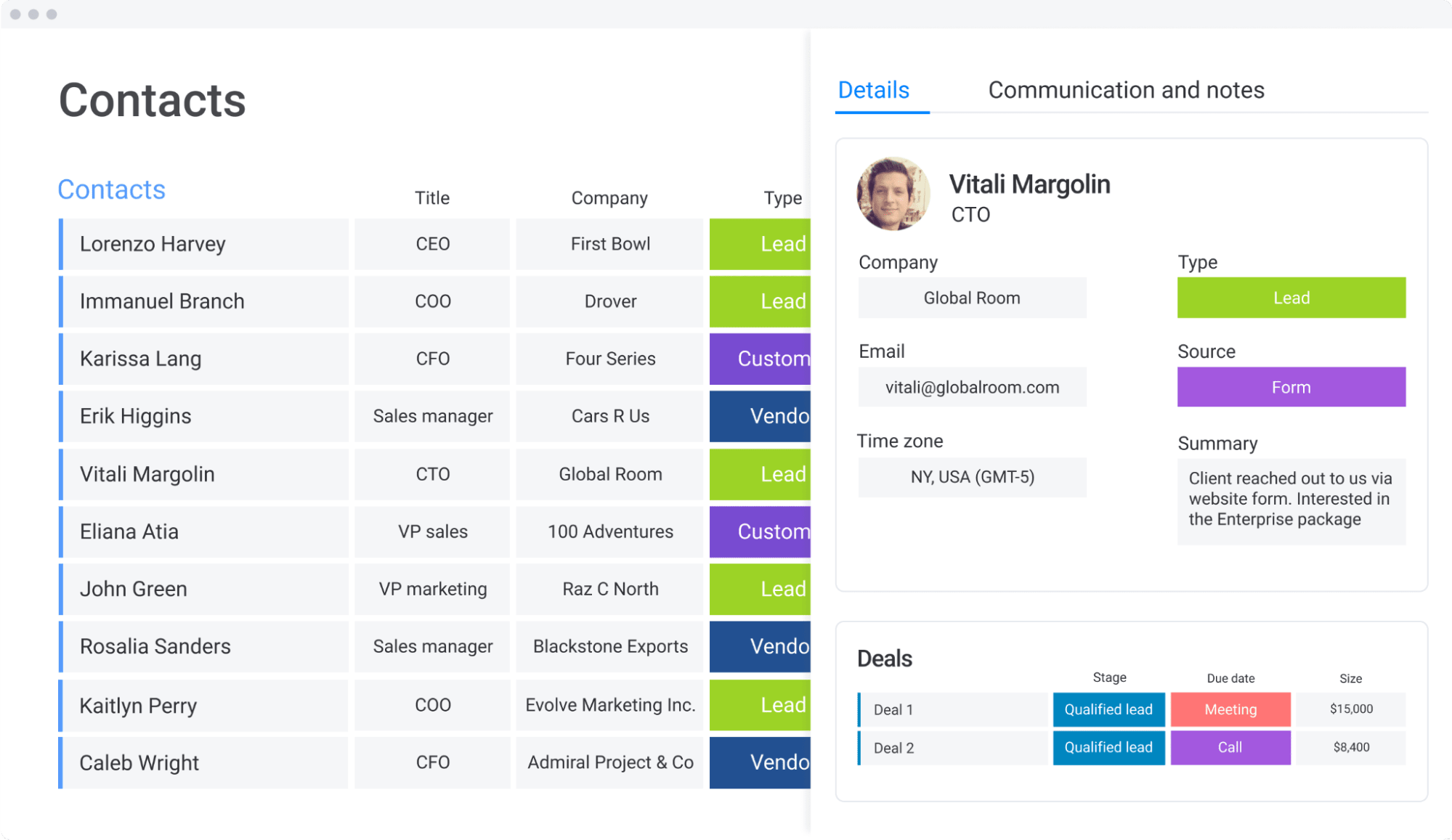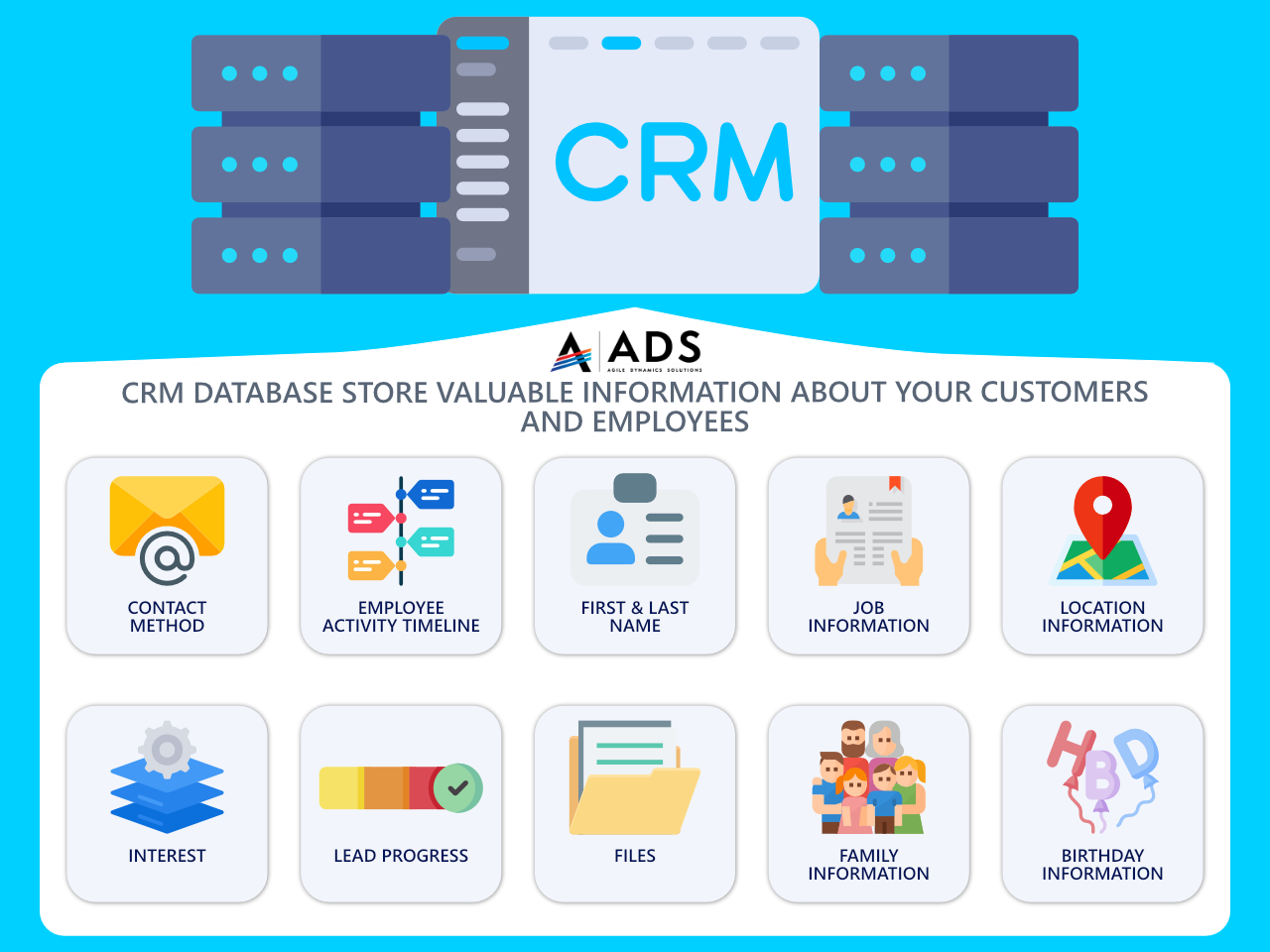Introducing CRM database systems, the cornerstone of modern customer relationship management. These systems revolutionize the way businesses interact with their customers, providing a centralized platform for managing contacts, tracking leads, and forecasting sales. Delve into the world of CRM database systems and discover their transformative power for your business.
CRM database systems empower businesses to streamline their operations, enhance customer experiences, and drive growth. With their robust features and seamless integration capabilities, these systems offer a comprehensive solution for managing customer data and fostering long-lasting relationships.
Introduction to CRM Database Systems
Customer Relationship Management (CRM) is a business strategy that focuses on building and maintaining profitable customer relationships. A CRM database system is a software application that helps businesses manage and track customer interactions and data.
CRM database systems can help businesses:
- Improve customer service by providing a central repository for customer information.
- Increase sales by tracking customer interactions and identifying opportunities for cross-selling and up-selling.
- Reduce costs by automating marketing and sales processes.
- Improve decision-making by providing data and insights into customer behavior.
Types of CRM Database Systems

CRM database systems come in various types, each with its own set of advantages and disadvantages. Understanding the different types can help businesses choose the most suitable system for their specific needs.
The two main types of CRM database systems are cloud-based and on-premise.
Cloud-based CRM Database Systems
Cloud-based CRM database systems are hosted on a remote server and accessed via the internet. They offer several advantages, including:
- Accessibility:Cloud-based systems can be accessed from anywhere with an internet connection, making it easy for remote teams and employees on the go to access the data they need.
- Cost-effective:Cloud-based systems often have lower upfront costs than on-premise systems, as businesses only pay for the resources they use.
- Scalability:Cloud-based systems can easily scale up or down to meet changing business needs.
However, cloud-based CRM database systems also have some disadvantages:
- Security:Businesses may have concerns about the security of their data stored on a remote server.
- Reliability:Cloud-based systems are dependent on internet connectivity, which can sometimes be unreliable.
- Customization:Cloud-based systems may not offer the same level of customization as on-premise systems.
On-premise CRM Database Systems
On-premise CRM database systems are installed and maintained on a business’s own servers. They offer several advantages, including:
- Security:On-premise systems provide businesses with more control over the security of their data.
- Customization:On-premise systems can be customized to meet the specific needs of a business.
- Reliability:On-premise systems are not dependent on internet connectivity, which can be more reliable than cloud-based systems.
However, on-premise CRM database systems also have some disadvantages:
- Cost:On-premise systems can be more expensive to purchase and maintain than cloud-based systems.
- Scalability:On-premise systems can be difficult to scale up or down to meet changing business needs.
- Accessibility:On-premise systems can only be accessed from within the business’s network, which can be a limitation for remote teams or employees on the go.
Key Features of a CRM Database System
A CRM database system is a powerful tool that can help businesses manage their customer relationships more effectively. These systems offer a wide range of features that can be customized to meet the specific needs of each business.
Some of the key features of a CRM database system include:
Contact Management
A CRM database system allows businesses to store and manage contact information for all of their customers and prospects. This information can include names, addresses, phone numbers, email addresses, and social media profiles. A CRM system can also track customer interactions, such as phone calls, emails, and meetings.
Lead Tracking
A CRM database system can help businesses track leads from the initial point of contact to the final sale. This information can help businesses identify which marketing campaigns are most effective and which sales representatives are closing the most deals.
Sales Forecasting
A CRM database system can help businesses forecast future sales by analyzing past data. This information can help businesses make informed decisions about staffing, inventory, and marketing.
Benefits of Using a CRM Database System
A CRM database system offers numerous advantages for businesses, enhancing customer relationships and sales performance. Here are some key benefits:
Improved Customer Relationships
- Centralized customer data:CRM systems store all customer information in a single, accessible location, providing a comprehensive view of each customer’s interactions with the business.
- Personalized experiences:By tracking customer preferences, purchase history, and communication channels, CRM systems enable businesses to tailor interactions to each customer’s needs, fostering stronger relationships.
- Automated communication:CRM systems automate communication tasks, such as sending personalized emails or reminders, ensuring that customers receive timely and relevant information.
Enhanced Sales Performance
- Improved lead management:CRM systems streamline lead generation and qualification processes, helping sales teams identify and prioritize potential customers.
- Automated sales pipelines:CRM systems automate sales processes, such as scheduling appointments, tracking progress, and closing deals, improving efficiency and productivity.
- Data-driven insights:CRM systems provide valuable insights into sales performance, customer behavior, and market trends, enabling businesses to make informed decisions and optimize strategies.
Challenges of Implementing a CRM Database System
Implementing a CRM database system can be a complex and challenging process. There are a number of potential challenges that organizations may face, including:
- Data integration: Integrating data from multiple sources into a CRM database can be a complex and time-consuming process. Organizations need to ensure that the data is accurate, consistent, and up-to-date.
- User adoption: Getting users to adopt a new CRM system can be a challenge. Organizations need to provide training and support to ensure that users are comfortable with the system and are using it effectively.
- Data security: CRM systems contain sensitive customer data, so it is important to ensure that the system is secure. Organizations need to implement appropriate security measures to protect the data from unauthorized access.
- Cost: Implementing a CRM system can be expensive. Organizations need to carefully consider the costs of hardware, software, implementation, and ongoing maintenance.
- Scalability: CRM systems need to be able to scale to meet the growing needs of an organization. Organizations need to choose a system that can handle the volume of data and users that they expect to have in the future.
Strategies to Overcome Challenges
There are a number of strategies that organizations can use to overcome the challenges of implementing a CRM database system. These include:
- Start small: Implement the CRM system in a pilot project before rolling it out to the entire organization. This will help to identify and resolve any issues before they impact a larger number of users.
- Get buy-in from stakeholders: Get buy-in from key stakeholders, such as sales, marketing, and customer service. This will help to ensure that the system is implemented successfully and used effectively.
- Provide training and support: Provide training and support to users to ensure that they are comfortable with the system and are using it effectively.
- Implement security measures: Implement appropriate security measures to protect the data from unauthorized access.
- Choose a scalable system: Choose a CRM system that can handle the volume of data and users that you expect to have in the future.
By following these strategies, organizations can overcome the challenges of implementing a CRM database system and reap the benefits of a successful implementation.
Final Summary

In conclusion, CRM database systems are indispensable tools for businesses seeking to elevate their customer interactions and achieve success. By leveraging the power of these systems, organizations can gain a competitive edge, optimize their sales processes, and build enduring customer relationships that drive profitability and growth.
FAQ Resource
What are the key benefits of using a CRM database system?
CRM database systems offer numerous benefits, including improved customer relationship management, streamlined sales processes, enhanced lead tracking, and accurate sales forecasting.
What are the different types of CRM database systems available?
CRM database systems come in various types, such as cloud-based, on-premise, and hybrid systems. Each type has its own advantages and disadvantages, depending on the specific needs of the business.
How can businesses overcome the challenges of implementing a CRM database system?
Implementing a CRM database system can present challenges, but businesses can overcome them by carefully planning, involving stakeholders, and providing adequate training to users.
